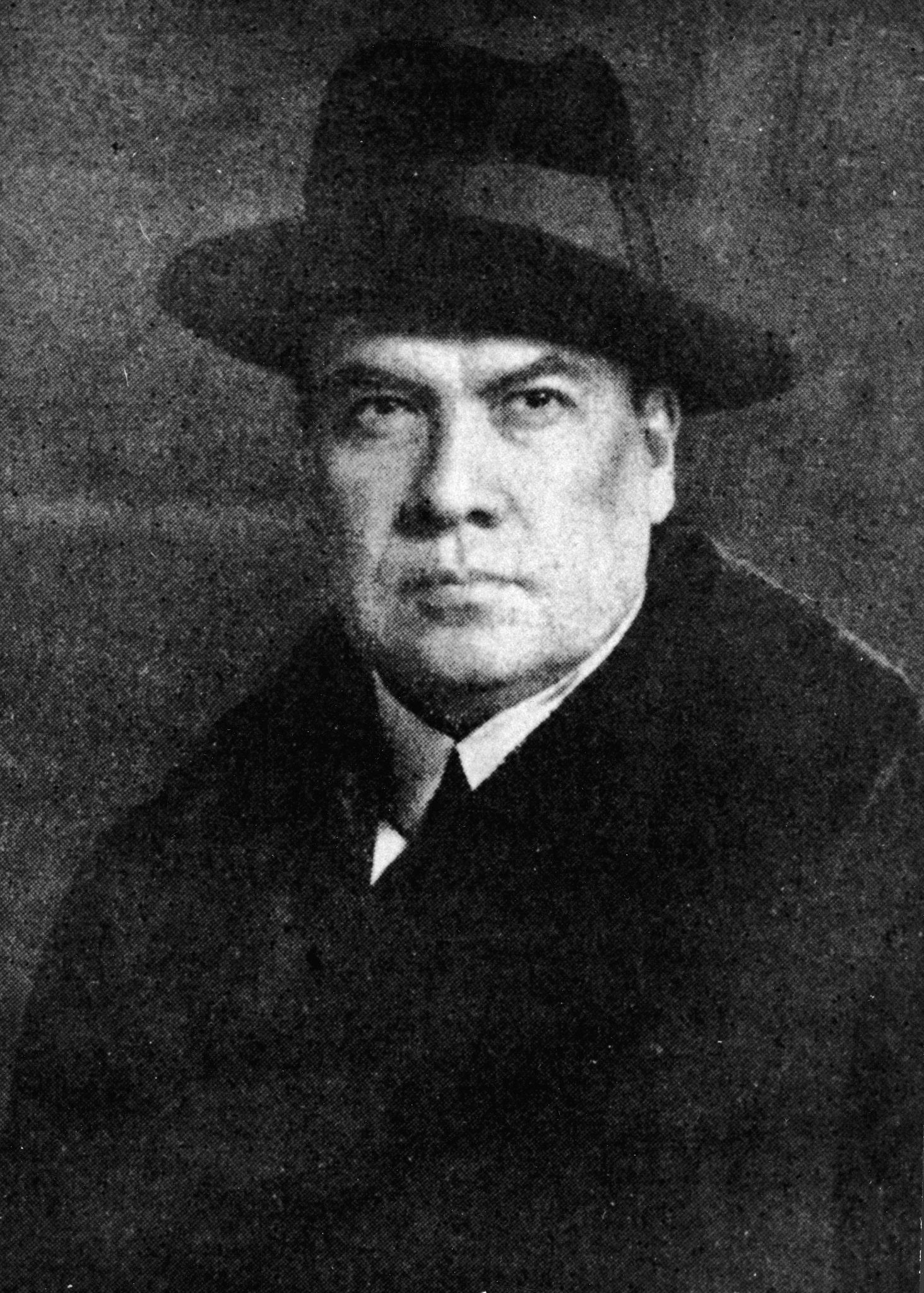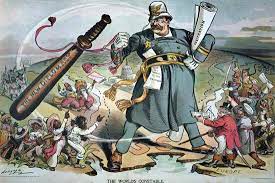<< Hide Menu
Sylvia Rodriguez
Sylvia Rodriguez
** "A Roosevelt" by Rubén Darío is a poetic letter that critiques American imperialism, advocates for the preservation of Latin American cultural identity, and calls for unity and resistance against oppressive forces.**
Context Behind "A Roosevelt” Rubén Darío
Author Background
Rubén Darío was a Nicaraguan poet, journalist, and diplomat, born in 1867. He is considered one of the most influential figures in Spanish-language literature of the late 19th and early 20th centuries and is often credited with helping to establish Modernismo, a literary movement characterized by a focus on beauty, musicality, and aestheticism. Darío's work often explored themes of love, nature, and the role of the artist in society, and he was known for his innovative use of language and poetic form.

Image Courtesy of Getty Images
Time and Place
📜Historical: The poem was composed in 1904, a year in which the United States was increasing its political and economic power in Latin America through measures like the Roosevelt Corollary and the Monroe Doctrine. The period of heightened tensions between the United States and several Latin American nations, characterized by disputes over territorial control, economic exploitation, and ideological disagreements, is reflected in this poem. The poem was written during a time when nationalism in Latin America was on the rise as nations fought to protect their sovereignty and cultural uniqueness from outside influence.
🗺️Geographic: The physical area of Latin America, which includes a wide variety of nations and cultures impacted by American imperialism, is the center of the poem. It emphasizes Latin America's importance and growth potential by portraying it as a region with abundant natural resources and scenic beauty. In order to highlight the actual effects of American expansionism on local communities, the geographic setting of the poem includes references to specific locales in Latin America.
Societal Context
👑Political: The poem captures the political climate of the era, when dictatorships, political instability, and independence movements were prevalent in countries throughout Latin America. Particularly under President Theodore Roosevelt, who pursued an aggressive foreign policy in the Western Hemisphere, it critiques the interventionist activities of the United States. "A Roosevelt" calls for the rejection of foreign intervention and the support of sovereignty, expressing a desire for political autonomy and self-determination for Latin American countries.
🧑🏽🤝🧑🏻Socio-economic: The poem emphasizes unequal power dynamics and economic exploitation as it discusses socioeconomic differences between the United States and Latin America. It criticizes the effects of American imperialism on the socioeconomic structure of Latin American nations, including resource exploitation and the stifling of regional industry. The phrase "A Roosevelt" relates to the negative social effects of imperialism, such as the erasure of cultural identity, reliance on outside sources of income, and the exploitation of native peoples.
🎭Cultural: The poem examines the contradictions between American principles and the region's rich cultural legacy as it depicts the cultural clash between the United States and Latin America. It highlights the value of keeping cultural identity in the face of foreign influence while celebrating the diversity and depth of Latin American culture. Through highlighting the cultural value of poetry as a means of resistance and self-expression, "A Roosevelt" emphasizes the role of art and literature in conveying the collective voice of Latin America.
Need to Know About "A Roosevelt”
Daro uses the poem as a vehicle to express his thoughts and to elicit discussion about the effects of imperialistic power dynamics.
Characters
Rubén Daro: The poem was written by Rubén Daro, who is also the poet. He speaks for Latin America's emotion and viewpoint, articulating its worries, irritations, and aspirations in the face of imperialism. Daro challenges American supremacy through his writing and promotes the preservation of Latin American identity.
Theodore Roosevelt: In the poem, Daro criticizes and addresses the 26th President of the United States, Theodore Roosevelt. He stands for Latin America's effects of American imperialism. Roosevelt is portrayed as the epitome of power and expansionism, and via his poetic discourse, Daro criticizes his acts and ideologies.
Literary Terms and Devices
Some of the literary devices used in this poem include:
- Paradoja: Ruben Daro uses the paradoja in "A Roosevelt" to highlight the irony and contradiction present in the topic of imperialism. The poet questions the alleged greatness and civilization of the United States while also criticizing its oppression of Latin American countries through statements that seem to contradict one another.
- Antítesis: The antithesis is used by Daro in "A Roosevelt" to contrast the concepts of dominance and resistance. The poet expresses the struggle between imperialist imposition and the need to preserve Latin America's cultural identity and independence through the opposition of thoughts and words.
- Metonimia: Rubén Daro uses the metonymy "A Roosevelt" to symbolize the influence of the United States in Latin America by mentioning its president, Theodore Roosevelt. The poet alludes to every aspect of the American political and economic system that is imposed on the region when he mentions Roosevelt.
- Verso libre: "A Roosevelt" is notable for its use of verso libre, a poetic form that enables Daro to express his ideas and emotions in a more flexible and free way. Through the lack of a fixed metrical structure, the poet is able to convey a sense of freedom and resistance to imperialism.
- Símbolo: Rubén Daro uses symbols to represent concepts and realities in his poem. For instance, the American eagle represents the United States and its expansionist foreign policy, while the mariposa symbolizes the vulnerability of Latin American nations in the face of this dominance.
- Apóstrofe: Throughout "A Roosevelt," Daro employs the retoral apóstrofe technique by addressing Roosevelt directly as if he were present. This literary figure emphasizes the poet's criticism of and denunciation of the American president and his imperialist foreign policy.
- Prosopopeya: The prosopopeya, or personification, is used in the poem to give Latin America voice and authority. Giving the region a personality allows it to be seen as a force capable of standing up to foreign dominance and reclaiming its voice and autonomy.
- Imagen: Rubén Daro's "A Roosevelt" is known for its vivid and vivid depiction of Latino American reality and its connection to American imperialism. Daro creates symbolic and descriptive images using poetry that capture the oppression, resistance, and cultural identity of Latin America. The image is used as a potent tool to convey feelings, awaken awareness, and paint a picture of the social, political, and economic realities of the time.
Summary of "A Roosevelt"

Image Courtesy of ThingLink
"A Roosevelt" is a poem addressed to Theodore Roosevelt, then President of the United States, and is often interpreted as a critique of US imperialism and intervention in Latin America. The poem is written in the form of an apostrophe, in which Darío directly addresses Roosevelt and challenges him to consider the impact of his policies on the people of Latin America. The poem is characterized by its strong language, vivid imagery, and use of rhetorical devices such as repetition and parallelism.
Furthermore, the poem can be seen as a call to action for Latin American artists and intellectuals to resist US imperialism and assert their own cultural identity. Darío himself was a key figure in the modernist movement, which sought to break free from European literary traditions and create a distinctively Latin American aesthetic. "A Roosevelt" can be seen as a manifestation of this desire for cultural autonomy, as Darío uses his poetic voice to challenge the hegemony of US power in the region.
The poem also explores themes of power, identity, and cultural conflict, highlighting the tensions between the United States and Latin America in the early 20th century. Darío's use of language and imagery serves to convey the complex emotions and experiences of the people of Latin America, who are often portrayed as victims of US imperialism in the poem. As such, "A Roosevelt" remains an important work of literature that continues to resonate with readers around the world today.
Themes in "A Roosevelt"
Las sociedades en contacto
The poem "A Roosevelt" by Rubén Daro criticizes American imperialism in Latin America. Daro discusses his worries about American supremacy and how it affects the independence and cultural character of the region. The poem includes a conversation between the author and Theodore Roosevelt, who at the time was the personification of strength and expansionism and was also the US president. Daro denounces the persecution of Latin American nations and urges unification and fight against imperialist forces through a variety of literary tropes, including paradox, antithesis, and symbolism. The poem highlights the necessity to uphold nationalism and encourage international respect by illustrating the tensions and conflicts that result from societies coming into touch.
El imperialismo
In addition to critiquing American imperialism, Rubén Daro's "A Roosevelt" stresses the value of Latin American cultural legacy and the necessity to save it from outside influences. Daro honors the diversity of the countries in Latin America as well as their distinctive characteristics. He uses poetic devices like personification and metonymy to capture the region's challenges and hopes. The poem urges Latin American nations to declare their independence and take back their voices through the use of free verse, which evokes a feeling of rebellion and liberation. A forceful cry to action, "A Roosevelt" urges Latin America to oppose hegemony, band together against injustice, and work toward self-determination.
El nacionalismo y el regionalismo
"A Roosevelt" reflects the tensions and conflicts brought on by interdependent societies. The poem gives voice to the power imbalances between the United States and Latin America, and fights for the region's independence and self-determination while fostering an idea of mutual respect and cooperation among the nations.
Significance of "A Roosevelt"
The poem is significant not only for its artistic value but also for its political and social impact. "A Roosevelt" helped to establish Darío as a leading figure in the Spanish-language literary world, and helped to bring attention to the issue of US imperialism and intervention in Latin America. The poem has been widely studied and analyzed and is considered a classic of Spanish-language literature.
In addition to its artistic value, "A Roosevelt" has a significant political and social impact. The poem helped to establish Rubén Darío as a leading figure in the Spanish-language literary world and a prominent voice in the political discourse of Latin America. By directly challenging Theodore Roosevelt and the US government, Darío raised awareness about the issue of US imperialism and intervention in the region, which had far-reaching consequences for the political and social landscape of Latin America.
The poem's themes of imperialism, nationalism, and resistance continue to resonate with readers today, and it has been widely studied and analyzed in academic and literary circles. "A Roosevelt" is considered a classic of Spanish-language literature and a testament to the power of poetry to inspire political action and social change. Its legacy can be seen in the works of later Latin American writers and intellectuals, who continue to grapple with issues of power, identity, and resistance in the face of political and social oppression.

© 2024 Fiveable Inc. All rights reserved.